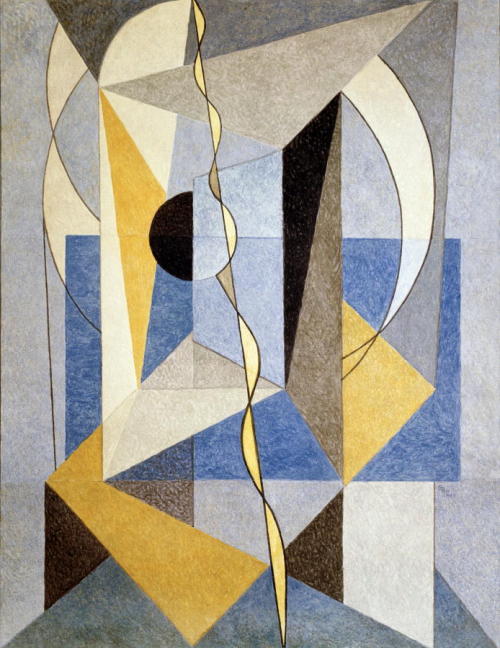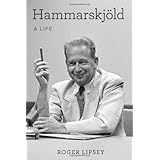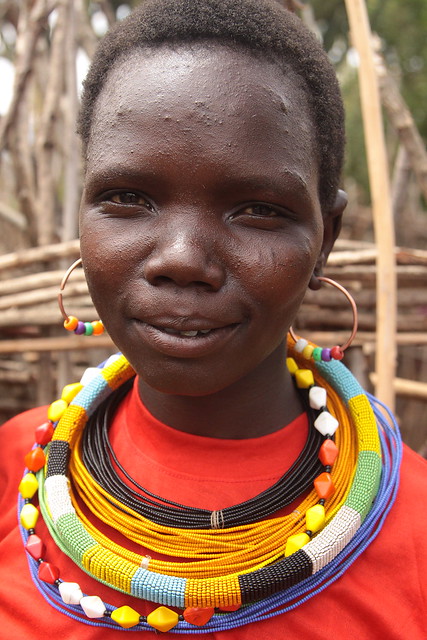"in the morning will I direct my prayer unto thee, and will look up" (Psalm 5.3 KJV)
Author: admin
-
Shut up and Listen: The Sound of a Gentle Stillness…..
I talk a lot.
Teaching.
Preaching.
Committes.
Conversations.
On the phone.
In the coffee queue.
As Merton said, "Words are the sounds that interrupt my silence."
In Christian discipleship, much emphasis is put today on doing, acting, performing, embodying. And yes there is a kind of passivity that is either laziness or boredom with this whole Christian thing. If you've never felt it you're lucky. It isn't loss of love so much as loss of vision, energy and inward motive which together add up to desire for God.
So I welcome the wise words of Philip Toynbee in his unjustly forgotten, even if dated Journal, Part of a Journey.
"To silence the mind is not enough. it has to be a listening silence. Very hard to get there; harder still to stay there."
Yes that's true. And it may be that the word discipleship has become a legalistic doing word, an abstract noun given content by action. Whereas to be a disciple is describing word, a statement of being, a follower, one who has made a commitment in to a relationship.
And relationships need time, communication, and the deepest relationships, communion. A listening silence pays the other the courtesy of attention, hearing and response – all of which are born in silence.
-
Longing for the Infinite…you have put eternity in human hearts, O God.
In the beginning was the Word….all things were made through him, and without him was not anything made that was made…
When I consider the heavens, the work of your hands….what are human beings that you care for them, mortal people that you keep them in mind?

The new images from the Herschel telescope mirror, 3.5 metres in diameter.
This image reminded me of the work of the late Rebecca Elson. I wrote about her in an earlier post here. I quoted the following poem, written by Elson, a brilliant astro-physicist, a deeply thoughtful human being, and one who, suffering a terminal cancer, explored her own mortality with courage, honesty and a deep longing for more.
Let there Always be Light (Searching for Dark Matter)
For this we go out dark nights, searching
For the dimmest stars,
For signs of unseen things:To weigh us down.
To stop the universe
From rushing on and on:Into its own beyond
Till it exhausts itself and lies down cold,
Its last star going out.Whatever they turn out to be,
Let there be swarms of them,
Enough for immortality,
Always a star where we can warm ourselves.Let there be enough to bring it back
From its own edges,
To bring us all so close we ignite
The bright spark of resurrection.I find few things more moving than those moments when human beings, and perhaps most of all pure scientists, who recognise mortality as both the given limits of life, and yet hold to a deeper trust that there is that which enables such limits to be transcended by a power and creativity beyond our ken….
And the Word became flesh and dwelt amongst us, and we beheld his glory, full of grace and truth.
-
Give peace a chance – the mission of the Body of Christ, the Church.

Fresco painted by the Swedish artist, Bo Beskow, illuminated within the Quiet Room at UN Headquarters, New York.
"This is a room devoted to peace
and those who are giving their
lives for peace. It is a room of quiet
where only thoughts should speak."
(Dag Hammarskjold)
Blessed are the peacemakers, for they shall be called the children of God.
Lord, make me an instrument of thy peace.
So far as it depends on you, live at peace with all people.
Our work for peace must begin within the private world of each one of
us. To build for man a world without fear, we must be without fear. To
build a world of justice, we must be just. (Dag Hammarskjold)When was the theme of peace,
in its length and breadth,
and height and depth,
last on the agenda of your local church meeting
as an essential missional question for followers of Jesus?
-
Dag Hammarskjold – the United Nations and the Road to Holiness.

In conversation with Jason the Forsythian when we met in Scotland he was guilty of shameless name-dropping:) He had been in the company of Archbishop Rowan Williams no less, a Christian thinker whose writing is often complex enough to both frustrate and satisfy; frustrating because you know he is saying something important and profound, satisfying because he never short changes the reader by dumbing down, cutting corners, or pretending all the jig saw pieces are even there. His return to academia will I hope mean he will begin to draw together much of his thought into a substantial vision of God enriched from important influences of Eastern and Western theology.But anyway, Williams mentioned to Jason the new biography of Dag Hammarskjold, and commended it warmly. His blurb is on the dust jacket:
"And admirably judicious and comprehensive – and long overdue – study of one of the most remarkable figures of the twentieth century, whose presence remains both spiritually and politically significant for an age of violently confused international relations."
Another former Archbishop, this time K G Hammar of the Church of Sweden, also commends the volume:
"A great book about a great man who must not be forgotten in a time which more than ever needs to see the footprints of Dag Hammarskjold – the combination of wholehearted engagement in the world and familiarity with the spiritual journey inwards."
My own debt to Hammarskjold goes back to the first reading of Markings, and how many people have to say that. It is a quite extraordinary book, a reservoir of wisdom, deep, fresh, reflecting shimmering sunshine, some blue sky but also clouds and the shadow of mountains. Maybe it would be better described as a Scottish loch then. But the maxims and reflections, the prayers and the psalms, the confessions and thanksgivings, the self critique and the compassionate outwardness, and through it all the sense of the reality of a power that is transcendent, suffusing life with mercy and hopefulness, – through it all, the sense of God.
I've often wondered what a book club would make of it, filled as it is with the heart and the mind of a great human being, part of whose greatness was his own sense of mortality, fallibility and the urgency of what we do with the gift of our life. One of his best known maxims remains true as a reminder to the Church of what its life is about, what its mission is to be:
"In our era, the road to holiness necessarily passes through the world of action."
Yes, and yes again. Lipsey's aim in this biography is to explore the importance of Hammarskjold's inner life as the engine and energy of his outward activities as an humanitarian, diplomat and man of faith caught up in the world of politics, power and international tensions. That small book of markings, found on his bedside table after his death, remains a classic of spiritual honesty, moral striving and the felt tension between disciplined duty and enabling grace from beyond ourselves.
-
Keep playing Vivaldi – Winter gives way to Spring, Eventually
On the road up the Cairn o' Mount this intrepid tree seemed to be hanging on for dear life. Its angle of repose has been shaped by years of windswept exposure, and roots more likely spread outwards than plunging deeply. No other trees are near it. How it got there, how it stays there, part of the accidental landscaping of a Scottish high level moor. I'm going to try for another photo of it in the summer – that might be some time away yet! I love trees.
Curved resilience
leaning away from wind chill;
but after snow, Spring.
-
The Boston Marathon and an Alternative to the Futility of Violence

I haven't been in many American cities, but I have been in Boston three times. My good friends Bob and Becky live in New England, and as their guests we have enjoyed the hospitality, warm love for all things Scottish, and the intellectual and cultural experiences of New England people. And from a blugerass concert to Shaker heritage, to Boston and its important place in the history of Baptist thought and practice, even visiting the Quaker assembly which Elton trueblood attended.
I guess not many now know the name Elton Trueblood. Philosopher and cultural critic, radical Christian practitioner and intellectually generous follower of Jesus, a man whose wisdom and deep love for God illumines much of what he wrote, lived and said. His sermons The Yoke of Christ, his numerous books on Christian engagement with society in the 1950's and 60's, and his reputation as a thinker deeply plunged in the contemplative foundations of Christian theology and prayer, made that brief glimpse of the place where this man lived out his later life a kind of low key pilgrimage. I owe much to Trueblood's thought.
His book Alternative to Futility was born in class discussions about war and peace, violence and dialogue, conflict and reconciliation. In the 50's the Cold War was fuelled by runaway fear and suspicion, and the futility of a world divided along lines of terror, hostility and the idolatry of explosive power. The idolatry of explosive power from bullets to missiles, smart bombs to IED's, and yes nuclear weapons and drone delivered death, is now an established and largely unchallenged recourse to the explosion of energy for the damage of other human beings.
And I guess my overwhelming response to the explosions at the Boston marathan, immediate and so far largely unreflective as it is, is one of deep sadness at the futility of such acts of violence and hatred of other human beings. The death of an 8 year old boy, there to celebrate his father's finishing the race is, well futile. The reduction of human life to fuel for publicity of any cause or none fulfils no meaningful purpose I can discern. Trueblood's thesis still requires adequate refutation – whatever the motives for the use of explosive power to the damage of another human being, it will always be invalidated in any hieracrchy of values that sees human hurt and human killing as a means to an immensely lesser end. I realise more can be said. And on reflection I may wish I'd said more, or less. But the sense of sadness, and the refusal to give in to the temptations of despair and cynicism that grow out of a sense of futility, will not make me want to be less hopeful, more committed to an alternative view of the world, more thoughtful in my prayers for a world like ours.
One of the great visions of the Hebrew Bible is children making the noise of play and excitement in city streets. Whatever else the death of that young boy means, it is a reminder of what I hope for in human fulfilment, and what I pray against in the actions and thinking of those who settle for futility.
Kyrie Eleison
Christe Eleison
Kyrie Elieson
-
Not a poem but a footnote

"The Human Other"
We must, in short,
descend into detail,
past the misleading tags,
past the metaphysical types,
past the empty similarities
to grasp firmly the essential character
of not only the various cultures
but the various sorts of individuals
within each culture,
if we wish
to encounter humanity
face to face."
I came across this as footnote 210 on page 139, in Graham Buxton's excellent Creation, The Trinity and Pastoral Ministry. Imaging the Perichoretic God. The quote is from Clifford Geertz the sociologist, in his book The Interpretation of Cultures. Typed like that it reads more as a poem than a footnote.
The photo can be found here on a site that is a marvellous celebration of culture, difference and otherness and the diverse richness of the varied beauty of the human face and the human family. The expression "face to face", happily a non-jargon description of cultural encounter, has so much potential for understanding, compassion, celebration and the shared enjoyment of God's creation.